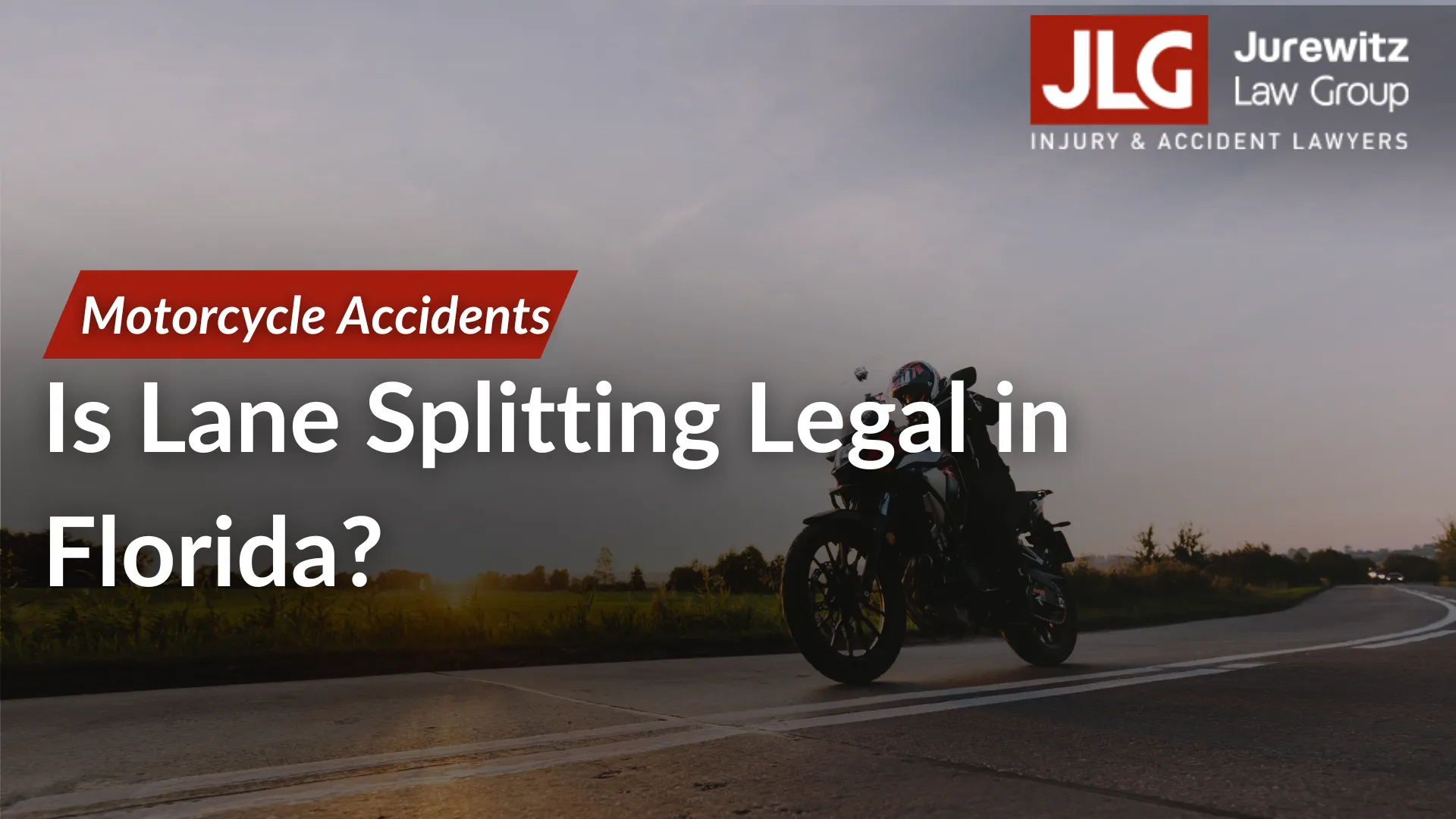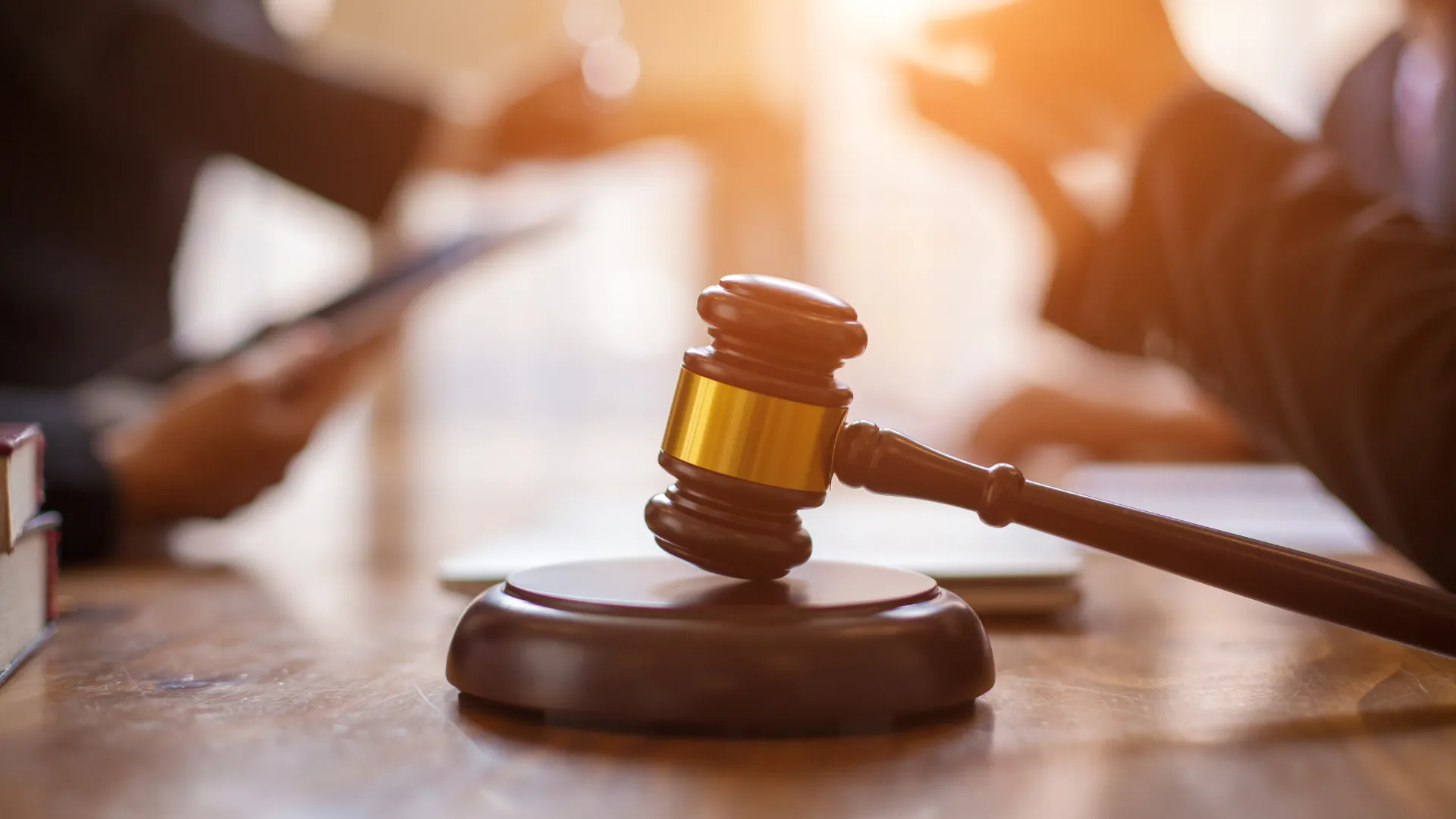
Lane splitting, also known as lane filtering or white lining, is the practice of motorcyclists riding between lanes of slow-moving or stopped traffic. While this technique is often used by motorcyclists to navigate congested roads and avoid rear-end collisions, its legality varies from state to state. But, is lane splitting legal in Florida?
In Florida, lane splitting has been the subject of much debate, with many motorcycle riders questioning its legality under the state’s traffic laws. In this blog post, we’ll explore the current legal status of lane splitting in Florida and discuss the arguments for and against its legalization. We’ll also guide motorcyclists on how to stay safe and within the bounds of the law when riding on the state’s roads.
Is Lane Splitting Legal in Florida?
Lane splitting laws in Florida state that it is illegal to “operate a motorcycle between lanes of traffic or between adjacent lines or rows of vehicles.”
Familiarize yourself with traffic laws for motorists in Florida. Doing so doesn’t merely keep you safe. Adhering to legal riding practices in Florida can help you guard against accidentally harming others.
Motorcycle Safety in Florida: Why Lane Splitting is Dangerous
Florida has good reason to outlaw lane splitting. Don’t ask “Is lane splitting legal in Florida?” if you don’t see the need for motorcycle safety. Traveling between lanes in a motorcycle (or similar small motor vehicle) is potentially dangerous for several reasons. For example, consider the following when riding a motorcycle in Florida:
- Motorists expect other motorists to behave in relatively predictable ways. They typically don’t expect other drivers to travel between lanes. Thus, a motorist might not know you’re nearby if you’re lane-splitting. They could try to change lanes or otherwise move their vehicle, putting you in harm’s way.
- Lane splitting can result in someone becoming trapped between two vehicles.
- Lane splitting may cause road rage among motorists who feel you’re “cheating” by essentially cutting ahead of them in traffic. In their anger, they may create a dangerous situation.
- Lane splitting can increase your chances of rear-ending another vehicle. Although you may assume you can safely navigate between vehicles and lanes, you might have overestimated your abilities.
Lane splitting can also influence a personal injury case. If you sustain injuries in a wreck, whether you were lane splitting can influence whether you receive compensation.
How Lane Splitting Can Affect a Florida Motorcycle Wreck Lawsuit
Florida requires drivers to buy Personal Injury Protection (PIP) insurance when registering vehicles with four wheels in Florida. PIP coverage kicks in after a wreck. If you sustain injuries in a Florida car crash, you may seek compensation for your medical bills from your insurance. You don’t have to prove someone else caused the crash to seek compensation.
Seeking compensation after a motorcycle wreck in Florida is different. PIP coverage doesn’t apply to motorcyclists in Florida. Thus, you might have to show someone else caused your injuries to justify filing a claim or lawsuit to seek compensation.
Lane splitting will affect your case. If you were lane splitting when the wreck occurred, an insurance company or defendant could argue you are responsible for your injuries. You may be unable to secure compensation as a result.
Additional Traffic Laws for Motorcyclists in Florida
Lane splitting is just one example of a potentially dangerous and illegal behavior a motorcyclist might engage in when riding in Florida. Along with the law prohibiting lane splitting, Florida motorcyclists should be aware of the following regulations and requirements:
- It is illegal for a motorcycle to operate more than two abreast in a single lane. Naturally, if riding two abreast still results in a lane being unreasonably crowded or cramped, motorcyclists should continue to ride single file.
- It is illegal to pass another vehicle in a motorcycle within the same lane as that vehicle. A motorcyclist must move to another lane to pass someone.
- Drag racing, stunt riding, and other forms of daredevil behavior are prohibited in Florida. Someone may only participate in these activities in private events that are properly licensed and regulated.
- It is against the law to overtake and pass another vehicle on the right. This excludes specific circumstances in which a motorcyclist can do so safely. Review the relevant Florida law to familiarize yourself with the conditions in which passing on the right is legal on a motorcycle. In no scenario (except in emergencies) is it legal for a motorcyclist to leave the paved or main section of a roadway to pass someone on the right.
- A motorcyclist should be able to keep their hands comfortable on the handlebars at all times when operating a motorcycle. Florida law prohibits riding a motorcycle while carrying items that might prevent a rider from gripping the handlebars.
Legal Riding Practices in Florida: How to Alert Other Drivers to Your Presence
 One of the main reasons lane splitting is dangerous is because it may prevent drivers from seeing motorcyclists as they travel between lanes. Additional Florida laws that help ensure drivers notice motorcyclists on the road include:
One of the main reasons lane splitting is dangerous is because it may prevent drivers from seeing motorcyclists as they travel between lanes. Additional Florida laws that help ensure drivers notice motorcyclists on the road include:
- A motorcycle must have at least one headlight/headlamp. It may have a maximum of two. All of a motorcycle’s headlamps must be at heights of no more than 54 inches and no less than 24 inches. A motorcycle’s headlights must always be on when the vehicle is in operation.
- A motorcycle requires at least one tail lamp. The maximum height for a tail lamp is 72 inches and the minimum height is 20 inches.
- A motorcycle must have at least one rear red reflector. The reflector can be attached to a taillamp/tail light, or it can be its own separate component.
- Every motorcycle must have a stop lamp. The stop lamp should emit a red or amber glow that others can see from a distance of at least 300 feet. In addition, a motorcycle must have turn signal lights.
To fully comply with the law, make sure your motorcycle not only has all these components but that they’re all in good working order.
Contact a Florida Motorcycle Accident Lawyer
Is lane splitting legal in Florida? Understanding potential legal options after a motorcycle crash in Florida can prove challenging. If you’ve been hurt in a wreck, consider reviewing your case with an attorney. Regardless of whether you were lane splitting, a Tampa motorcycle accident lawyer can help you determine how you may seek compensation.
At Jurewitz Law Group Injury & Accident Lawyers, our lawyers offer the dedicated representation you deserve. If you’re eligible for compensation, we can help you pursue the best possible outcome for your claim. Learn more by contacting us online or calling us at (619) 233-5020 for a free case evaluation with our team of lawyers.


